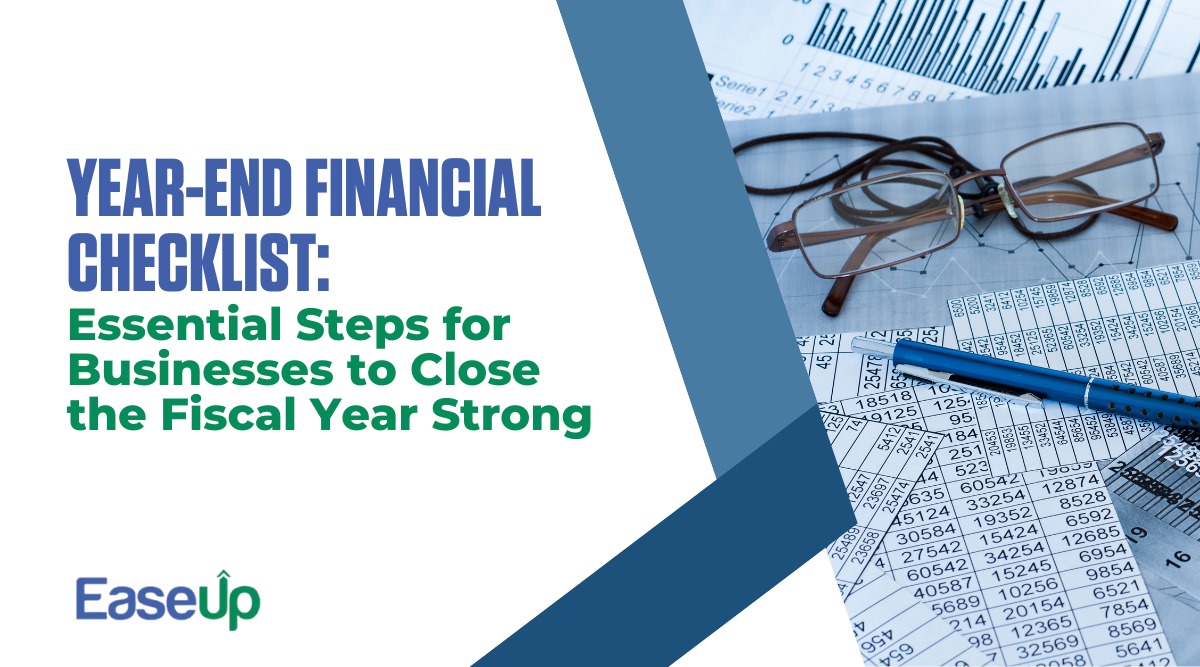

Mastering Cash Flow: Strategies to Keep Your Business Solvent
Mar 27,2025

No matter how big or small a business is, cash flow is what keeps it going. It’s the money that comes in and goes out, with which your business keeps running smoothly. It shows how much cash is coming in from loans, investments, and sales and how much is going out to pay bills. Correct control of this flow is required for the long-time survival and growth of your company.
According to a U.S. Bank research, a shocking 82% of companies fail from inadequate cash flow management. Even profitable companies might fail without a thorough grasp of it and the instruments for managing it.
Strong cash flow management is about getting ready for future development, working out unexpected expenses and doing everything to assure your enterprise is in a position to just take new possibilities when they appear, not just about preserving the lights on.
In this guide, we will understand the concepts of cash flow and are presented with the strategies that will empower you to keep your business liquid and robust.
Understanding Cash Flow Basics
Knowing what It actually is and how it works will help one see ways to better manage the same.
At its most basic, cash flow is the difference between cash inflows — the money that enters your business — and cash outflows — that leaves it.
Types of Cash Flow
Operating Cash Flow:
This includes the daily financial activities of your business, such as sales revenue, rent, labor, utilities, and other ongoing expenses.
Investing Cash Flow:
This cash flow is caused by activities involving long-term investments — buying or selling assets, real estate, or investments.
Financing Cash Flow:
That will encompass all cash flows — from loans, to equity investments, to dividend payments — connected to the financing of your company.
Cash Flow Calculation
It is the difference between total cash inflows and total cash outflows. Knowing which category you are in and how this helps you navigate as an investing makes investing choices easier and smarter. This allows you to control the finances of your company in a more optimal way and avoid risks that damage the stability or expansion of your company.
The Consequences of Poor Cash Flow Management
Good control of cash flow is essential for your business health. There are dangerous repercussions of either mismanaging or manipulating cash flow.
Inability to Pay Bills:
Bad cash flow can prevent you from paying bills like utilities, rent or payroll, leading to penalties or even business closure.
Missed Growth Opportunities:
Without liquidity, your business will be unable to get its hands on new ideas or grow, inhibiting growth prospects.
Increased Debt Reliance:
Businesses tend to use loans or credit to fill in for cash shortages when it matters. This can make it nearly impossible to break free from a cycle of debt.
Real-life Example: Toys “R” Us
Toys “R” Us was once among America’s most significant stores but collapsed partly because of poor cash flow management. The company leveraged itself to the hilt and failed to manage its liquidity properly. The firm stopped short-term debt or lost a chance, missed out on new opportunities, and can’t afford to pay the bills. The incident underscores the importance of proper cash flow management to avoid this kind of dire outcome.
Strategies to Improve and Maintain Cash Flow
The knowledge of the fundamentals of cash flow management as well as the risks involved is your first step in examining well-planned approaches to provide momentum to, and sustain your business cash inflow.
Forecasting and Budgeting
It projections allow you to anticipate surpluses or shortages of funds and when they are likely to hit your business. Anticipating financial needs down the road ensures that you can plan in advance & secure enough liquidity when required.
Estimating it and track gaps with its tools like excel templates, Quickbooks, and float
Managing Receivables
The immediate effect is improving it. Providing discounts or motivational cash benefits for early payment will motivate the customer to pay faster and cash flow will be improved.It will also help you to make sure you stay on top of reminding about payments and tracking down payments via automating your reminders and invoicing.
Controlling Payables
Long payment terms from suppliers are not something to be terrified of. Waiting longer to pay (without messing up your relationships with suppliers) will preserve more of your cash. However, don’t stretch these terms too thin because it could damage the image with vendors.
Building a Cash Reserve
A cash reserve covers three to six months of expenses, staving off lean times or a financial crisis and helping your company sustain itself. For the majority, battling the storm is centered on continuing cash from that safety net. This is why you need to make sure you factor it into your financial plan.
Reducing Costs
By regularly assessing expense against your company’s financial landscape, you can find areas in which to trim or eliminate wasteful spending. In this context, technology is an important factor that enhances the efficiency and reduces the operational cost. With the right tools, businesses can automate processes and reduce costs which make cost management a breeze.
Diversifying Revenue Streams
Relying solely on one product or service puts your business financials at risk. You can generate a more stable cash flow by diversifying your income sources — so that means having synergistic products or services. For example, to create more revenue, a SaaS company can introduce training offerings.
Leveraging Professional Help
Money management can get hard as your business grows. Services are thankfully available to help with this problem.
Role of Virtual CFOs
Virtual CFO services also offer professional financial management and cash flow direction without the necessity of hiring someone full-time. The virtual CFO will enable you to make better financial decisions, streamline your operations, and brighten your way to financial success. They analyze your financial flow, highlight any potential problems and help implement plans for improvement.
Benefits of Financial Advisory Services
A financial advisory service provides the expertise necessary for your business to manage it, streamline processes and implement financial strategies. You would gain insights about the issues that can be dealt with and have better forecasting and liquidity management can lead to improved financial health results; this would come in through working with a financial consulting company.
Data and Tools to Master Cash Flow
Effective management of cash flow depends on correct data and the correct tools.
Unbelievably, 60% of small businesses experience cash flow issues every year. While it is a general problem, it can be fixed with the right tools and methods.
Tools to Help You Master Cash Flow
Payment Processing: Tools such as Stripe and PayPal ensure they are paid on time, and integration with payment acceptance is seamless.
Forecasting Software: Forecasting tools like Float and Pulse will let you successfully handle your money and cash flow, forecasting.
Accounting Software: Use Xero or QuickBooks to monitor it, generate reports, and automate accounting chores to free you to focus on growing your company.
Conclusion
Effective cash flow management is key to ensuring your business can survive and thrive. An effective cash flow management strategy means your business is in good financial health, prepared for growth opportunities as well as the unexpected. Although proper management may seem like a very difficult task, hiring expert and experienced financial consulting firms and using virtual CFO services can give you a lot of help in this regard. They offer customized solutions to optimize cash flow, predict your future cash requirements and remain liquid, creating conditions for your business to thrive, irrespective of the marketplace.
Easeup stands out as the best financial consulting firm to guide you. They can leverage their virtual CFO service experience to help you avoid complicated financial problems to allow your business to more easily receive the cash flow necessary to fuel growth and create stability. Managing it proactively instead of reacting to a crisis—partner with Easeup for your path to sustainability.

CA Aditya Chokhra
April 11, 2025

Empower Your Business with Expert Financial Consulting
Latest Post
Leave a Reply

Contact us and subscribe to our newsletter to receive expert advice and industry updates.

Copyright © 2025 Easeupnow. All rights reserved.




















